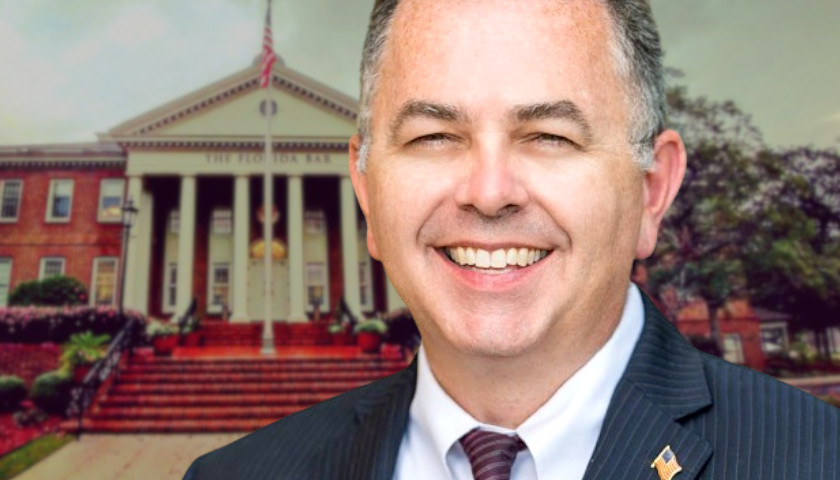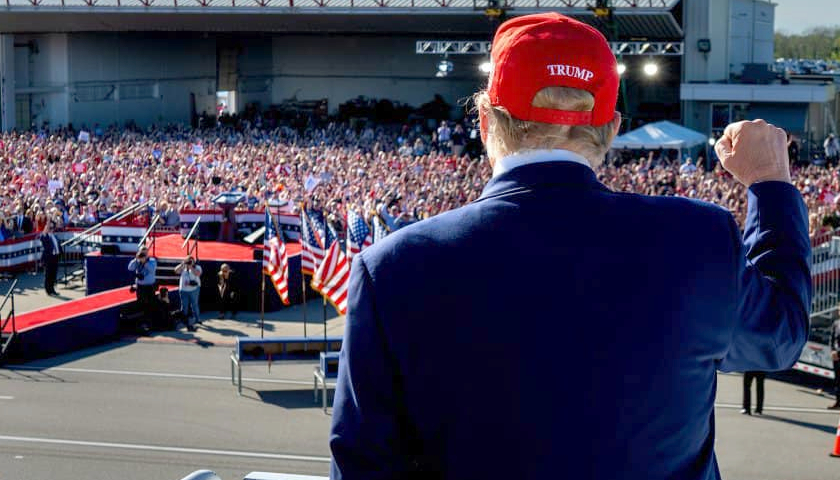U.S. Senator JD Vance (R-OH) said on Tuesday that President Joe Biden‘s forced transition to electric vehicles (EV) threatens the bargaining power of the U.S. auto industry.
This follows the United Auto Workers (UAW), an American labor union, calling for a strike at the Big 3 U.S. automakers, General Motors, Ford, and Stellantis, in Michigan, Missouri, and Ohio last week. The UAW is demanding shorter work weeks, restoration of defined benefit pensions, and stronger job security as automakers transition to electric vehicles.
On Monday, the UAW said it would announce more plants to strike at the end of the week if no serious progress is made on their demands.
According to Vance, the push for electric vehicles is premature, and its proponents are unaware of how much their agenda weakens the bargaining position of Ohio’s autoworkers.
“The ongoing United Auto Workers strike marks a pivotal moment for the American labor movement. This historic walkout across the Big Three automakers shows that union workers have not lost their resolve. It also offers the UAW an opportunity to safeguard their future against an existential threat: President Biden’s forced transition to electric vehicles,” Vance said.
Following the UAW strike announcement last wek, Toledo-based newspaper The Blade published an editorial calling for Toledo’s autoworkers to accept the transition to electric vehicles and a future of reduced pay and fewer job opportunities due to Biden’s EV agenda.
Vance wrote an op-ed to The Blade‘s editorial claiming that it outlined “exactly the wrong approach” that the autoworkers should be taking.
“The Blade’s Sep. 16 editorial “UAW eyeing EV plants” outlines exactly the wrong approach. Instead of leveraging this moment to steer the Biden administration away from their obsession with EVs, the editors would have Toledo’s autoworkers resign themselves to a fate of lower wages and fewer job prospects. Make no mistake: that is what the future holds if Joe Biden’s EV folly is allowed to continue. I pray the UAW leadership has the wisdom to acknowledge it,” Vance wrote.
According to Vance, since China controls the global supply chain for electric vehicles, China also makes the majority of these vehicle’s core components with Chinese labor and materials. He also noted that two of the Big Three automakers are losing large sums of money on electric vehicles which leads to lower wages, fewer jobs for workers, and higher consumer prices.
Vance detailed that northeast Ohio’s once-iconic Lordstown Assembly Complex, where 15,000 union workers once assembled millions of cars, now stands as a battery plant that employs a fraction of the workers at a fraction of the wages. Also, earlier this summer, Lordstown Motors, an electric vehicle company, filed for bankruptcy.
According to Vance, Ohioans want a course correction from this forced transition to EV.
“Ohioans that I speak with justifiably wish to see a course correction. But instead of pumping the brakes, the Biden administration is doubling down on EVs and driving our auto industry straight off a cliff. The editors pointed it out themselves: “In less than 10 years two-thirds of the autos sold need to be electric powered according to current government mandates.” The numbers show that the government-mandated shift to electric vehicles has been a disaster, and the numbers have been significantly propped up by taxpayer subsidies for EVs. But no amount of government underwriting will outweigh such unsustainable losses over the long term. It is time for a reckoning in the auto industry and at 1600 Pennsylvania Avenue,” Vance said.
Vance claimed that decades of ineffective leadership in Washington and the boardroom have destroyed proud manufacturing villages like Toledo.
“Today, the same politicians who pursued an aggressive agenda of trade liberalization that crushed American industry are making the exact same mistake, but under the banner of climate alarmism. What proponents of this premature push to electric vehicles fail to appreciate is how much their agenda decreases the bargaining power of Ohio autoworkers. The more the Big Three’s business model relies on global supply chains and non-union labor, the less the UAW can effectively push for higher wages. Their leverage decreases every time a consumer buys a car made without an Ohio worker, and yet the policies of the Biden administration are explicitly designed to shift the auto industry offshore,” Vance said.
According to Vance, UAW leadership can use their leverage and force Biden to stop subsidizing an industry that benefits Communist China more than American workers. He said he will support any agreement between the UAW and the Big Three that accomplishes these goals.
– – –
Hannah Poling is a lead reporter at The Ohio Star, The Star News Network, The Arizona Sun Times, and The Tennessee Star. Follow Hannah on Twitter @HannahPoling1. Email tips to [email protected]
Background Photo “UAW Workers on Strike” by UAW International Union.








